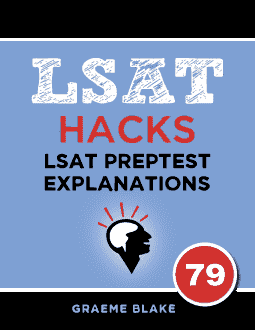DISCUSSION: This was the hardest question, for me. The most efficient way to solve it is to go part by part, and eliminate answers with a wrong part.
___________
- Lines 8-10 (“some plausible explanation must exist”) show that passage A is not skeptical about muscle memory.
Also, passage B doesn’t seem aimed at those with personal experience. - An article aimed at scientific researchers would probably discuss scientific studies. Even if there are very few, it would be the natural starting point.
- If an article was aimed at athletes with a trainer, it would say things like “talk to your trainer about how to use muscle memory when starting again”
- CORRECT. The personal language in passage A suggests it is meant for people who have weight training experience. For example, “it could be that one way your body” (line 19), “When you’re making a comeback” (line 23), etc.
Passage B is trickier, but there are some hints. For example, the phrase “pumping up” is very informal, which suggests this isn’t aimed at professionals. And the next line “and now scientists think they know why” is common in newspaper articles. It assumes the reader is not a scientist, and also not a professional in the field who might read scientific articles (e.g. not an exercise physiologist).
“In a recent study” is also a hallmark of general interest journalism. A scientific publication would likely reference the authors, the date, etc. – information which would let the reader track down the original study. Newspapers tend to simply say “a recent study shows….” - I thought this was the most plausible wrong answer. I think I unduly focussed on the psychological explanation given in paragraph 3 of passage A. But that section is speculation, and a passage devoted to psychological professionals would be unlikely to include pure speculation.
As for exercise physiologists, see my comments in D. An article for professionals would likely cite the authors of the study, and wouldn’t use a phrase like “pump up”.


Leave a Reply